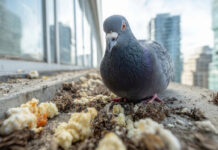The vote taken on the future of wild African elephants by members of the Convention on International Trade in Endangered Species of Wild Fauna and Flora (CITES) this past weekend is a step in the right direction, but leaves a lot of questions unanswered.
The 183 members voted on Sunday (18 August) on a proposal to ban the live trade in African elephants. By a two thirds majority, they decided that ‘appropriate and acceptable destinations’ for African elephants should be in situ conservation alone. Among those not in favour of the ban included South Africa, Namibia, Botswana and Zambia – which profit financially from the trade.
Animal welfare organisation, Network for Animals (NFA) chief campaigner David Barritt said: “The vote is certainly a step in the right direction but a lot of questions are still unanswered, such as when such a ban will be implemented and what measures will be taken to enforce it.”
“This means that African elephants should only be moved between elephant-suitable habitats, in places where elephants traditionally roam,” said Barritt.
“Theoretically, this should rule out zoos anywhere in the world. What is not clear is if this ruling will be honoured by countries like Zimbabwe, which has 37 wild baby elephants being held in pens at the Hwange National Park, waiting for export to Chinese and Pakistani zoos.”
The capture of the baby elephants in Zimbabwe caused outrage among conservationists because it is known to be intrinsically cruel. Elephant calves are dependent on their mothers for up to ten years, even sometimes suckling that long and should never be removed from a family group.
“Most have been held in pens since December last year. If they are returned to the wild now, it is by no means certain that elephant herds will accept them, but it’s certainly a better option then sending them to spend the rest of their lives in cages,” said Barritt.
He added that the clock was ticking as to whether elephants were to be returned to the wild.
NFA is an international non-profit organisation with offices in Cape Town, South Africa, which uses investigation, direct action, public education and government outreach to achieve victories for animals. NFA is a leading force against animal cruelty, representing more than one million supporters around the world.








